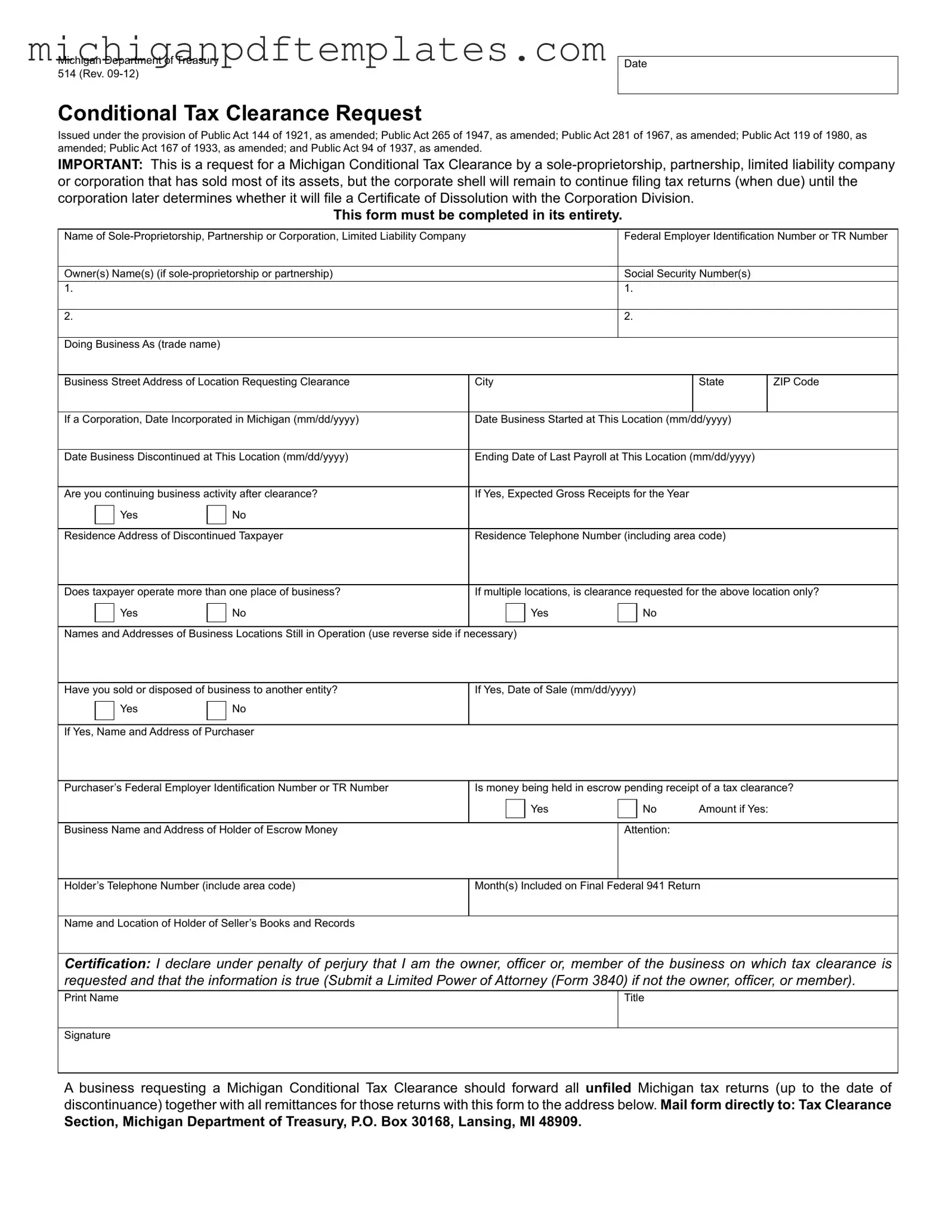Fill in Your Michigan 514 Form
The Michigan 514 form is a Conditional Tax Clearance Request used by businesses in Michigan, including sole proprietorships, partnerships, and corporations, that have sold most of their assets but wish to maintain their corporate status while filing tax returns. This form is essential for ensuring that all tax obligations are settled before a business can proceed with certain transactions or dissolve. If you’re ready to navigate this process, fill out the form by clicking the button below.
Get Your Form Now

Fill in Your Michigan 514 Form
Get Your Form Now

Get Your Form Now
or
▼ PDF Form
Finish this form quickly and move on
Fill in and complete Michigan 514 online quickly.